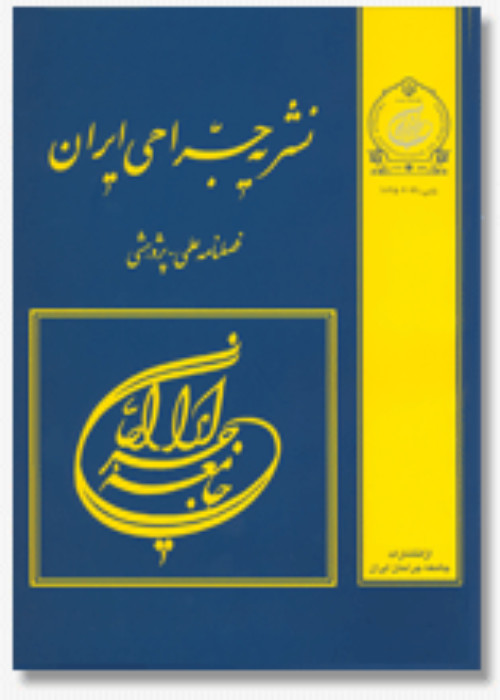Situation Analysis of Surgical Services at District Hospitals in Iran on the Basis of WHO Program
Introduction &
One of the main functions of general hospitals is surgical care which allocates numerous admissions. About 11 percent of diseases are treated by surgery, and the volume of surgery in rich countries is much higher than in the poor ones. Also cost- benefits for essential surgical care in low and middle income countries aren’t suitable. In this regard, the World Health Organization (WHO) has done a study to identify surgical care situations in various countries. This study was done, according to WHO Program, to investigate situational analysis of surgical services at the district hospitals in Iran.
This Research is a descriptive and applied one. The research population consisted of 53 general hospitals in Iran of which researcher couldn’t get data from 13 general hospitals. Data from 40 hospitals was gathered using standard WHO questionnaire with 130 questions, and it was subsequently analyzed.
The study indicated that in relation to surgical infrastructure services, all hospitals had emergency rooms but only 50 percent of them had central oxygen cylinder supply. As for human resources involved in the surgical services, on the average %2.12 fulltime surgeons 0.97 anesthesiologist and 0.68 obstetrician/gynecologist were on duty. The most frequent services rendered in all of these hospitals were: suturing, wound debridement, regional and spinal anesthesia, general anesthesia inhalation and male circumcision(100 percent); most referral cases were related to acute burn management (62.5%), cleft lip repair and neonatal surgery (60%), clubfoot repair (57/5%), skin grafting and urethral stricture dilatation (55%). The mean needed equipment for resuscitation supplies in studied hospitals was 42.2, while for capital outlay the averages 97.43, and for renewable items and Supplementary equipments it was 12.8.
Iran’s general hospitals are capable of delivering general surgical care and have a capacity and potentials for providing professional and advanced surgical care. Therefore based on the results of this research and in the direction of WHO activities in integrating management, for elevating quality of emergency services and essential surgical care, documented and organized information in the surgical care domain could be gathered and supplied to WHO in order to complete the global atlas regarding to Iran. Finally, with WHO cooperation, desired strategies for elevating the quality of surgical services can be presented to health system officials and providers.
- حق عضویت دریافتی صرف حمایت از نشریات عضو و نگهداری، تکمیل و توسعه مگیران میشود.
- پرداخت حق اشتراک و دانلود مقالات اجازه بازنشر آن در سایر رسانههای چاپی و دیجیتال را به کاربر نمیدهد.


